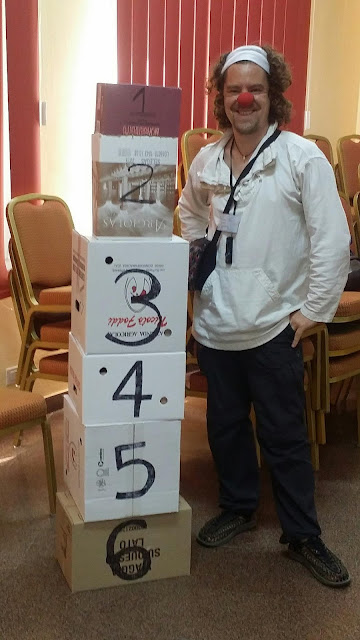In retrospective, it's clear to me that the inspiration for such a law does not come out of the blue, but from many observations, from basic education principles to the recent vote in favor of the UK leaving the European Union, and various situation of daily life. Let me describe a few:
- (basic education principle) When educating a child, one must set up simple rules, so that the child is able to understand them: it's useless to punish a child for breaking a rule that he did not understand.
- (daily life, or almost) I am scheduled to take the plane tonight, to go for several days far from home. I was sick last night, I feel better but horribly tired. Shall I cancel my trip? I did take an insurance on my plane ticket, but the conditions are complex and I did not memorize them. I wish there was a law forcing an entity such as the travel agency to use a vocabulary that I can understand even when I am jet-lagged and/or half-sick (e.g. a "creative commons" of contract).
- (UK leaving the European Union) In his article about the vote from the UK to leave the European Union, Glenn Greenwald mentioned how the elite have lost the trust of the "common" people, and how the elite and their supporting teams in media, academia and elsewhere, react condescendingly to this vote of no confidence. Whether the condescension is deserved or not is not really the main theme: people who spend their time manufacturing and caring for their children might not have the time to ponder all the economical subtleties of belonging or not to the European Union, but they definitely have the common sense to refuse to sign a contract that was not properly explained to them, under the excuse that it is so complex that "they would not understand it anyway".
- (Travel Insurance) A couple of friends are planning a travel. They took the insurance offered with their ticket even though they "think" that their credit card insurance is already covering some of the risks: they did not have the time nor patience to find the credit card contract, nor to read both and compute the difference. The travel insurance can hire lawyer, those friends cannot.
- (Chile encouraging citizens to rewrite their constitution) The government of Chile is currently encouraging its citizens to participate in focus groups in order to write a new constitution. I am interested but I did not have the time to participate. Actually, I do not know anyone who has the time to do so, nor can I imagine many who do, except for people from the Chilean elite who works a few hours per week. I fear that the conclusion of this exercise will only serve as a self-justification for the Chilean elites...
- (Computational Power in Game Theory) I remember Kate Larson explaining how some game theory results completely changed when one started taking the computational power of the agents playing the game, and in particular when considering models where various agents had distinct limits on their computational power. It would seem logical to take this into account in the writing and application of the law.
- In a society with such a law, there would still be a need for jurists and (relatively) complex laws, on one hand between entities of high level, such as between two international companies or between two governments, and on the other hand in the not-so-simple problem of measuring the level of complexity of each law and entity.
- I do not think that anyone can have such law introduced in the legal system of any country (maybe in some institutions), if only because such a law would have to be introduced in the elite, which is due to lose some advantages by it. Rather, it seems that the road toward such laws must be paved by effort inspired by creativecommons.org to design a simpler vocabulary for any contract (not only contracts between authors and others).












